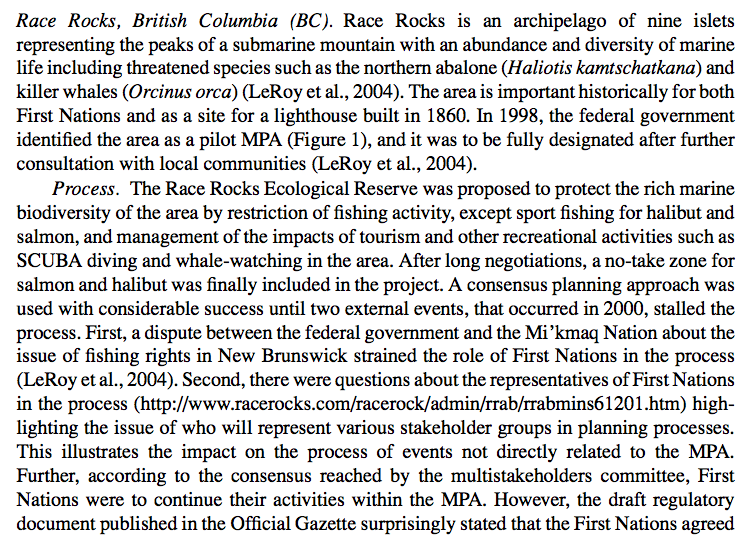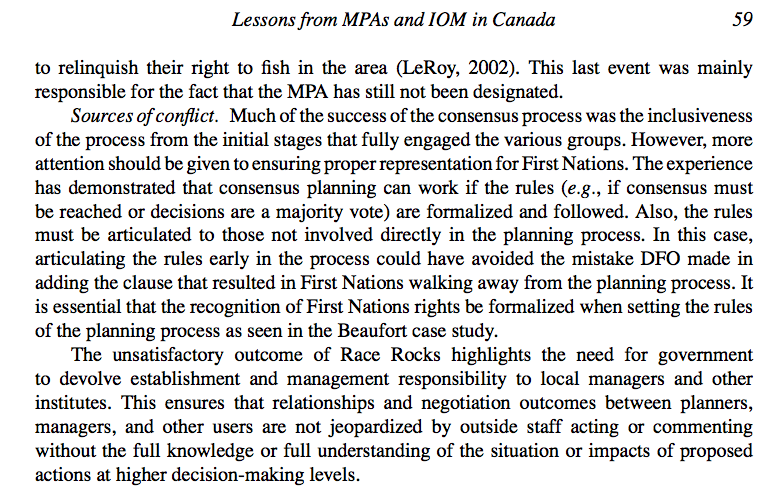From:
http://www.zoology.ubc.ca/courses/bio416/MPAs_Canada.pdf
Coastal Management, 35:51–78, 2007
Copyright © Taylor & Francis Group, LLC
ISSN: 0892-0753 print / 1521-0421 online
DOI: 10.1080/10.1080/08920750600970578
SYLVIE GUENETTE ´
JACKIE ALDER
Fisheries Centre
University of British Columbia
Vancouver, BC, Canada
and
Centre for Coastal Studies and Continuing Studies in Science
Simon Fraser University
Burnaby BC V5A 1S6
Abstract: There is a wave of interest in Marine Protected Areas (MPA) and Integrated Management (IM) as tools for addressing declines in marine environments through ecosystem-based management.
Lessons learned from seven MPA and two IM initiatives in Canada show
how engaging stakeholders results in: building and maintaining momentum through
social capital; using the collective knowledge of stakeholders; consensus through
formal and informal rules; and developing leadership capacity. However, as the number
of issues or the number of stakeholders increases—especially where fisheries are
involved—time, resources, and challenges in gaining support and participation increase.
Political and administrative obstacles and resistance to change still constitute much of
the challenge. Finally, funding and political commitment must be allocated from the
start; otherwise momentum stops and it is hard to regain even when funding becomes
available.
The following excerpt is a case study of Race Rocks:

